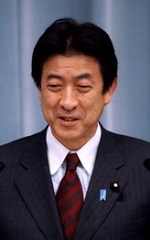If Japanese health officials follow through on current plans, beginning in April of next year makers of generic drugs that until now have enjoyed the government's strong backing will face their own price caps, reportedly a reduction of about 17% from current levels.
The Kyodo News cited officials of the Ministry of Health, Labor and Welfare who said an advisory panel strongly recommended the current cap of 60% of the price of the innovative version of a drug be lowered to 50% and the cap for biosimilars be set at 70%.
Other parts of the proposal, which the ministry is expected to make before the New Year, would make other price changes based mostly on the timing with patent expirations, the Kyodo story carried in the Japan Times said.
 |
| Japan Health Minister Yasuhisa Shiozaki |
Until now, the Japanese government has been more lenient with generics prices than branded drugs as it carried out a plan to get the healthcare industry to focus more on the cheaper versions. But a series of recessions have forced budget cuts, including in the nation's national health system, at a time when the population is aging at a fast rate.
Before the most recent recession, Japan already had planned that more than 80% of prescriptions written by March 2021 be for generics instead of branded drugs. The pace today is only 50% but is expected to reach 70% in 2017.
According to the unnamed officials cited by Kyodo, the proposal would include allowing a maker of the innovative drug to bring its own generic to the market as soon as its patent for the medicine has expired.
Also, if several generics of a brand are available as that patent expires, the generic cap would be set at 40% of the price of the innovator's drug.
In addition to lowering the cost of the medicines it and the population buy, the ministry was also expected to accept the recommendation of another advisory panel to limit the fees it pays to hospitals and physicians, an estimated savings of $3.5 billion.
The cut in those fees would account for nearly all of a proposed budget cut of $4.1 billion, needing only $600 million from other sources, pharmaceuticals.
- here's the story from the Japan Times